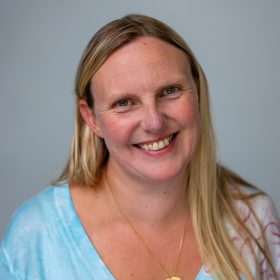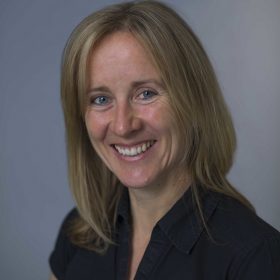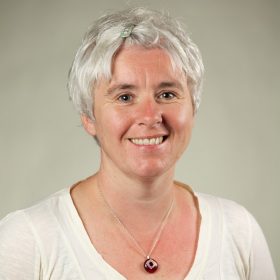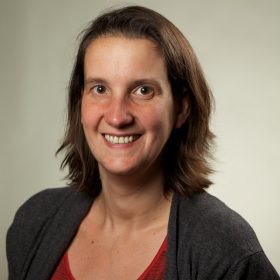Antibiotics are one of the most commonly used medicines for newborn babies, especially in the first few days of life when doctors are watching closely for possible infections. Infections that appear within the first 72 hours after birth – called early-onset infections – are treated very seriously. To be safe, doctors usually start babies on antibiotics through a drip (called intravenous or IV antibiotics) for at least 36 hours.
In most cases, if tests and observations show no signs of infection, the antibiotics are stopped after 36 to 48 hours. But it’s not always easy to tell if a baby is truly infected, since early symptoms can be vague. About 25–30% of babies who start on antibiotics end up needing a longer course – usually 5 to 7 days – because doctors can’t be sure there’s no infection.
At the Royal Devon University Healthcare NHS Foundation Trust, a new approach is being introduced. If a baby needs a longer course of antibiotics, parents may be offered the option to switch from IV antibiotics to antibiotic medicine taken by mouth (oral antibiotics) after 36 hours – as long as the baby meets certain safety criteria. This switch has some important benefits, like helping babies go home from the hospital sooner.
What is this project doing?
There are two main parts to our work:
- Our Evidence Synthesis Team has reviewed all the existing research to better understand the effects of switching from intravenous (IV) to oral antibiotics in newborns with suspected early infections. The review is awaiting publication, but a non-peer reviewed pre-print version is available here, and the protocol is available here.
- We’re working with clinical teams at the Royal Devon University Healthcare NHS Foundation Trust and Health Innovation South West to share the NOAH pathway more widely across the South West and assess how well it can be adopted elsewhere.
As part of this, there are 2 planned evaluations. In 2025/2026, the team are sharing data and learning from 9 Trusts across the UK who have adopted NOAH, or similar projects. These Trusts are spread across the South of England, including those in the South West, London, and Kent, Surrey and Sussex. The evaluation will look at things like the number of babies going through the pathways, their outcomes in terms of readmission and any further confirmed cases of sepsis. The evaluation will also enable learning around how Trusts are implementing NOAH for further uptake.
For 2026/27, the team are in the process of planning a national evaluation through collaborating with Trusts across the UK who are looking to implement an oral switch pathway. This will be undertaken via the Neonatal Operational Delivery Networks (ODNs). This evaluation will gather data on the pathways from a higher number of Trusts to build an even more robust data picture.
Both evaluations will ensure that future practice is based on the best available evidence.
We’ve also funded two knowledge mobilisation (KM) fellows, Dr Harriet Aughey and Dr Kelly Boxall, to help roll out the NOAH pathway across the region and support the wider evaluation of its impact. We caught up with Harriet and Kelly to hear more about their KM Fellow journeys- watch the videos here and here.
Prof Stuart Logan, director of the National Institute for Health and Care Research Applied Research Collaboration (NIHR ARC) South West Peninsula, said:
“NOAH is showing how evidence-based innovation can make a real difference for babies and their families. Safely reducing the use of need for intravenous antibiotics means newborns can go home more quickly while keeping them fully protected and saves scarce NHS resources. We’re grateful that the NIHR has provided the opportunity to bring together clinicians, parents and researchers to make the most of evidence to improve care.”
Emily Jeffery, who experienced the NOAH pathway at the Royal Devon University Healthcare NHS Foundation Trust after giving birth to her daughter Luna, said:
“After having a successful homebirth then being transferred postnatally, the NOAH Project allowed us to continue our homebirth story; letting us be together as a family at home, caring for Luna in her early days. The supportive and knowledgeable nature of the staff helped us to feel confident and happy in taking Luna home and alleviated any risk of what could have been, a prolonged hospital stay, and stressful postnatal period”.
Gerdien Tramper, consultant pediatrician and principal investigator of the original trial (called the RAIN study) in the Netherlands, said:
“Our team is very delighted to see the findings of the RAIN study being implemented internationally, with oral antibiotic switch therapy now entering neonatal care in different countries. This development enables young families to return home sooner and has a tremendous positive impact on their quality of life in the first week (s) after birth of their newborn.”
Impact
Since the project began, NOAH has been having a positive impact:
- At the end of 2025, the team presented findings so far and gave expert witness testimony to NICE, who are currently in the process of updating their guidance on neonatal infection. The new guidance is expected in May 2026.
- Based on findings from the NOAH project so far, Wales has completed an audit and will be going live with the NOAH programme in January 2026.
- NOAH was also the winner of Best Local Project at the British Association of Perinatal Medicine Gopi Menon Awards 2025 (read the NOAH poster here) and has been endorsed by the Neonatal Nurses Association.
- The BBC featured the NOAH project in August 2025.
For neonatal teams wishing to adopt this quality improvement initiative, a range of implementation resources have been developed to help you plan, execute, and sustain NOAH – find these on the Health Innovation South West website. You can also read the full evaluation here.
Please note that as of 3 November 2025, the NOAH pathway transitioned from using oral Co-amoxiclav to oral Amoxicillin for babies completing antibiotic treatment at home. Find out more in the rational for change document. All resources have been updated accordingly as of 5 November 2025. Please note also that translated versions of the Patient Information Leaflet will be added imminently.
Collaborators
- Harriet Aughey, Royal Devon University Healthcare NHS Foundation Trust
- David Bartle, Royal Devon University Healthcare NHS Foundation Trust
- Kelly Boxhall, Paediatric resident doctor & NOAH Mobilisation Fellow
- Louise Hall, Health Innovation South West
- Sally Hedge, Health Innovation South West
PenARC Staff

Professor Jo Thompson-Coon
Professor of Evidence Synthesis and Health Policy
Rebecca Whear
Senior Research Fellow
Dr Rebecca Abbott
Senior Research Fellow
Alison Bethel
Information Specialist
Morwenna Rogers
Information Specialist
